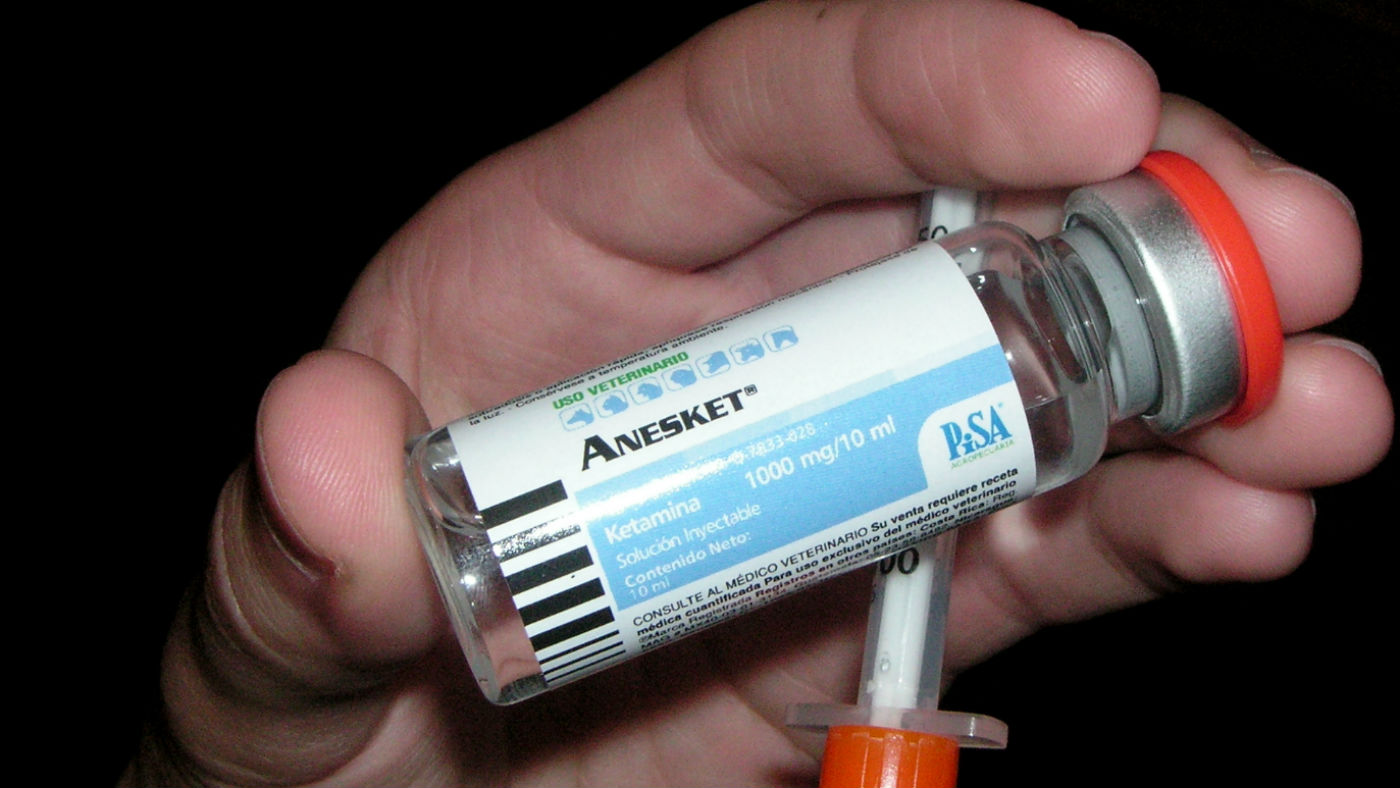Ketamine nasal spray ‘improved severe depression within hours’ in US study
Nasal spray containing component of the party drug reduced suicidal urges in study

A free daily email with the biggest news stories of the day – and the best features from TheWeek.com
You are now subscribed
Your newsletter sign-up was successful
A nasal spray containing mind-altering “party drug” ketamine had a fast-acting effect on reducing the symptoms of severe depression, including suicidal thoughts, in a study carried out in the US.
All 68 participants were hospitalised and given antidepressants in the study, carried out by Johnson and Johnson-owned research group Janssen in conjunction with the Yale School of Medicine.
Half the patients also received a nasal spray of esketamine, one of the two molecule components in ketamine, while the others received a placebo.
The Week
Escape your echo chamber. Get the facts behind the news, plus analysis from multiple perspectives.

Sign up for The Week's Free Newsletters
From our morning news briefing to a weekly Good News Newsletter, get the best of The Week delivered directly to your inbox.
From our morning news briefing to a weekly Good News Newsletter, get the best of The Week delivered directly to your inbox.
“In just a matter of hours” participants in the ketamine test group and their doctors “measured a significant improvement in symptoms of patients classed as being at high risk of suicide,” says The Independent.
Although the boost wore off over time - after 25 days, both groups were in a similar condition - the rapid effects of the ketamine spray indicate that it could be particularly beneficial for patients at risk of suicide, especially as most conventional antidepressants take four to six weeks to reach their full effect. Further research is needed before the drug can be approved for use in the US.
Ketamine, a class B drug, is licensed for medical use as an anaesthetic, but in recent years scientists have become increasingly interested in its use in mental health treatment.
Because the drug is already licensed as a medicine for its anaesthetic effects, it is already being prescribed for depression “off label” in private clinics, the BBC reports.
A free daily email with the biggest news stories of the day – and the best features from TheWeek.com
Dr James Stone, from the Royal College of Psychiatrists, told the BBC that the results were "interesting", not least because of the involvement of pharmaceutical giant Johnson and Johnson.
“The main reason for its significance is because this is being developed by a drug company and it's potentially quite likely that this medication might become available as a treatment available on the NHS for depression,” he said.
If approved for use on the NHS, Stone said, the spray “would be aimed at people with severe depression as a second or third line of treatment if other drugs haven't worked”, including as a potential alternative to electroconvulsive therapy.
-
 Political cartoons for February 20
Political cartoons for February 20Cartoons Friday’s political cartoons include just the ice, winter games, and more
-
 Sepsis ‘breakthrough’: the world’s first targeted treatment?
Sepsis ‘breakthrough’: the world’s first targeted treatment?The Explainer New drug could reverse effects of sepsis, rather than trying to treat infection with antibiotics
-
 James Van Der Beek obituary: fresh-faced Dawson’s Creek star
James Van Der Beek obituary: fresh-faced Dawson’s Creek starIn The Spotlight Van Der Beek fronted one of the most successful teen dramas of the 90s – but his Dawson fame proved a double-edged sword
-
 Epstein files topple law CEO, roil UK government
Epstein files topple law CEO, roil UK governmentSpeed Read Peter Mandelson, Britain’s former ambassador to the US, is caught up in the scandal
-
 Iran and US prepare to meet after skirmishes
Iran and US prepare to meet after skirmishesSpeed Read The incident comes amid heightened tensions in the Middle East
-
 Israel retrieves final hostage’s body from Gaza
Israel retrieves final hostage’s body from GazaSpeed Read The 24-year-old police officer was killed during the initial Hamas attack
-
 China’s Xi targets top general in growing purge
China’s Xi targets top general in growing purgeSpeed Read Zhang Youxia is being investigated over ‘grave violations’ of the law
-
 Panama and Canada are negotiating over a crucial copper mine
Panama and Canada are negotiating over a crucial copper mineIn the Spotlight Panama is set to make a final decision on the mine this summer
-
 Why Greenland’s natural resources are nearly impossible to mine
Why Greenland’s natural resources are nearly impossible to mineThe Explainer The country’s natural landscape makes the task extremely difficult
-
 Iran cuts internet as protests escalate
Iran cuts internet as protests escalateSpeed Reada Government buildings across the country have been set on fire
-
 US nabs ‘shadow’ tanker claimed by Russia
US nabs ‘shadow’ tanker claimed by RussiaSpeed Read The ship was one of two vessels seized by the US military